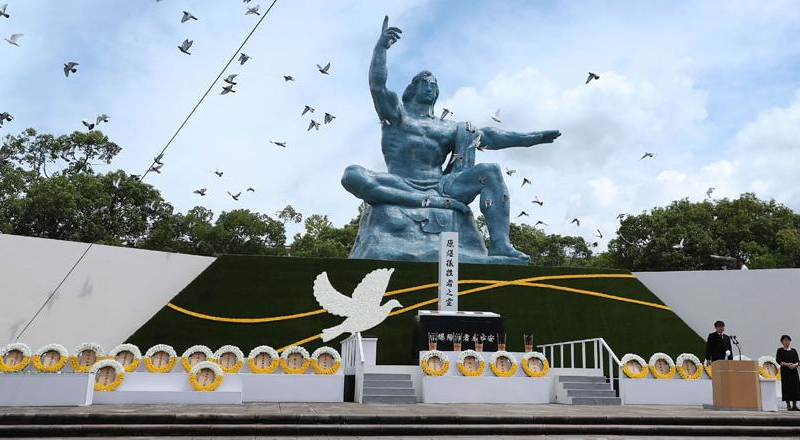In a striking display of overcommitment to Israel at the expense of broader diplomatic considerations, the U.S. Ambassador to Japan, Rahm Emanuel, announced his decision to skip Nagasaki’s annual peace memorial ceremony. This decision, driven by the exclusion of Israel from the event, raises serious questions about whether the U.S. is allowing its close relationship with Israel to overshadow its own interests and those of the global community.
The Nagasaki peace memorial ceremony is a solemn occasion, marking the devastating atomic bombing of the city by the United States during World War II. It serves as a poignant reminder of the horrors of nuclear warfare and the need for continued efforts toward global peace. This year, however, the ceremony has been overshadowed by the U.S. and British ambassadors’ decision not to attend, in protest of Israel’s omission from the event.
Nagasaki’s mayor, Shiro Suzuki, made the decision to exclude Israel, citing concerns over security risks and potential disruption. While the mayor emphasized that his decision was not based on political judgment, U.S. Ambassador Emanuel quickly condemned the move, arguing that it equated Israel’s actions in Gaza with Russia-Ukraine conflict—a comparison he called “morally equivalent.”
This reaction from the U.S. highlights a troubling trend in American foreign policy: an unwavering commitment to Israel, even when it conflicts with broader international interests. The exclusion of Israel from the Nagasaki ceremony was a decision made by local officials, rooted in their desire to maintain the solemnity of the event. By boycotting the ceremony, the U.S. is not only undermining these local decisions but also distracting from the larger message of the event—reflecting on the horrors of war and the need for peace.
Furthermore, the decision to prioritize Israel’s inclusion over participating in a global peace event sends a concerning signal to the international community. It suggests that the U.S. is willing to jeopardize its relationships with other countries and ignore significant diplomatic opportunities in order to stand by Israel, regardless of the context or consequences.
The absence of the U.S. ambassador from such an important event also risks alienating other nations and diminishing the credibility of the U.S. as a —stance that fails to address the root causes of conflict and instead entrenches division.
The decision by other countries, including Britain, France, Italy, Australia, and Canada, to join the U.S. in this boycott further complicates matters. It raises the question of whether these nations are following the U.S. lead out of genuine concern, or simply as a show of solidarity with a powerful—a move that undermines global peace efforts.
As the U.S. continues to navigate its relationship with Israel, it must consider the broader implications of its actions on the global stage. Prioritizing one nation over collective diplomatic goals risks not only undermining international relationships but also diminishing the very values that the U.S. purports to uphold—peace, diplomacy, and the pursuit of global stability.
In the end, the decision to boycott the Nagasaki peace memorial ceremony over Israel’s exclusion is a clear example of how the U.S.’s overcommitment to Israel can lead to missteps in diplomacy, distracting from the important work of building global peace and understanding.








